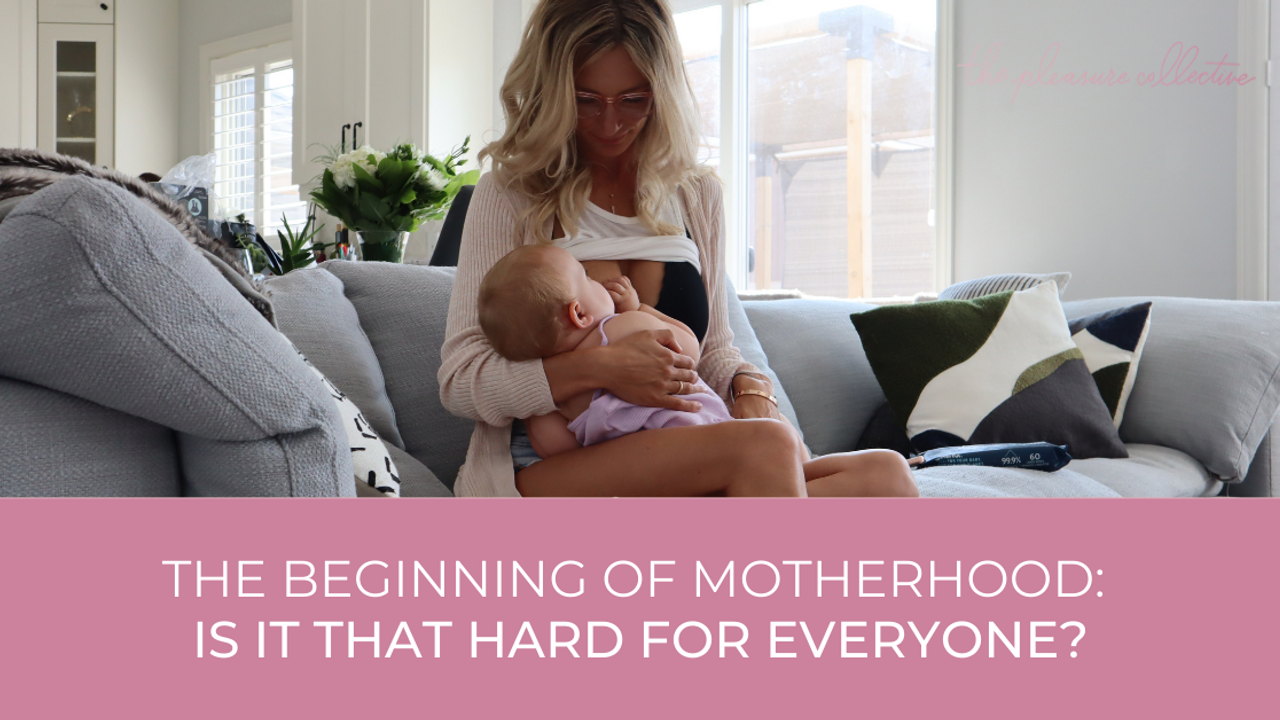The Beginning of Motherhood: Is it That Hard for Everyone?

Entering motherhood comes with what seems like a never-ending number of changes. Physical, emotional, mental - you're now a source of food, care and support like never before. Becoming a mother is often described as the happiest time of someone's life despite the sleep deprivation, mood swings, and endless amounts of diaper changes. However, postpartum affects new moms in ways that aren't shared or spoken about nearly as much as they should be. It leaves those in the wake of new motherhood feeling completely alone, leading them to doubt themselves and question whether or not the beginning of motherhood is this hard for everyone. From the time we were young, we were taught to compromise: to compromise our own needs for the needs of others. Our mothers and grandmothers modelled this behaviour, and we were trained to live in a mould that no longer serves us, that never served any of us.
The Isolation of Motherhood
Becoming a mother is truly something you can't relate to unless you've experienced it yourself. Even with the most supportive partner, you can still feel lonely and isolated, as being the preferred parent takes a significant toll on your physical and mental wellbeing. You often lose yourself in the process of putting your child at the forefront, and your health and pleasure are no longer a priority. Of course, that's not to say your partner hasn't experienced changes or is having a difficult time, but that experience is different. Men have a different way of processing emotions and often don't know how to be that helpful to their partner, so they choose to stay out of the way.
Why isn't the seriousness of this isolation discussed or shared before it happens? New mothers are often reluctant to use the term postpartum depression to describe what they're going through. There's a feeling of shame or guilt that comes with that, "shouldn't I love this experience?" or "is it really that bad?". It's not until you hear from others about their own postpartum experiences where you understand you're not alone, and your feelings become valid.
There's a fear with moms that if they admit that they want or need more support from their partner or friends, they're not great moms. Discussing these topics of postpartum challenges and isolation means opening yourself up and becoming vulnerable, something that's extremely scary, especially as a new mom. But the support and validation that comes from sharing these experiences are essential to break this taboo cycle of feeling as though you're alone. Sisterhood is the solution that seems too obvious, but it is what you need.
The Pleasure Principles
Entering motherhood comes with new duties and responsibilities, but you also experience loss. Loss of your past self, loss of personal time and loss of freedom of pleasure are just some examples. The Pleasure Principles (https://www.thepleasurecollective.com/programs) was created to help moms rediscover their desire - to understand what they want and communicate those needs without shame. This doesn't necessarily mean pleasure of a sexual nature (although that is extremely important) - this can also mean the pleasure that comes with space and support.
Happy, pleasure-filled moms are great moms, and the pleasure ripple effect helps spread this happiness beyond themselves and to their partners, children and families. We see the investment in yourself to ensure your pleasure is supported as a necessary teaching experience for your children. Children copy what they see, and if that is happiness, then that is what they will learn to value too.
Thinking about what we were taught about sex and pleasure in school, there were so many negative associations or general misinformation. We never learned how to make sex pleasurable for both people, yet we expect it to function without fully understanding it. The Pleasure Principles introduces a new approach in how to discuss and experience pleasure because pleasure is a human right and lack of pleasure is a health problem. It is the sex education you wish you had in school and that you will want your children to learn.
Generational Pleasure
Generational pleasure can be taught to children by showing them the example of how to live your life filled with pleasure. Some points to teach your children about the importance of pleasure:
- Pleasure and being in your pleasure is NOT selfish
- Be comfortable using the term pleasure - it's not just sexual
- BE unapologetic and put your needs at the forefront
- Prioritize and practice pleasure daily - whatever that means for you
- Feel safe and secure in yourself and what brings pleasure and joy, despite what others may think
For more insights on motherhood and the importance of pleasure, listen to episode #20 on Apple or Spotify.
Information has been taken from The Pink Canary: The Hidden Secret to Optimum Health for Women by Dr. Jordin Wiggins.


